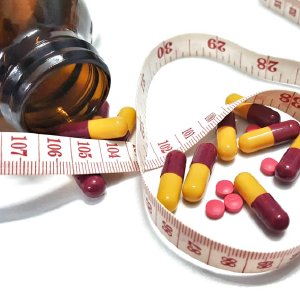Those Having Weight Loss Surgery Should Be Warned About Drug Abuse Risks

Weight loss surgery may increase the risk of substance abuse, a recent study shows. Certainly, it is tied to increased use of drugs and alcohol. Researchers collected surveys from 132 women and 23 men, all patients of bariatric surgery (used to treat obesity). There were significant increases in the use of illicit drugs at the time of surgery, as well as one, three, six, and twenty-four months afterward.
There are certain risks that weight loss patients need to be aware of as they have a higher risk than most for drug abuse after surgery.
Painkiller Addiction Is First Primary Risk
Obesity, a growing problem in the United States, can cause many dangerous health conditions. The typical treatment is gastric bypass surgery. Patients follow up treatment with medication for pain management, which is generally acetaminophen and opioids such as Percocet, Vicodin, Tylenol #3 or Tramadol. Recovery from gastric bypass surgery should not include non-steroidal anti-inflammatory medication like Advil, Motrin, Aleve or Excedrin. This medication increases the risk of developing ulcers in the area of the stomach where the surgery took place.
The trouble with opioids such as Percocet and Vicodin, however, is that they are extremely habit-forming. After gastric bypass surgery, the stomach is smaller and the metabolism different, thereby changing the effects of a normal dosage of prescription drugs. Doctors urge patients to be cautious and become familiar with the signs of drug addiction.
Addiction Swapping
Some experts speculate that substance abuse becomes a replacement for the food addiction users had before surgery. Addiction swapping is typical behavior, such as a recovering heroin addict becoming an alcoholic, or an alcoholic being hooked on sugar. The addiction fills a void or provides distraction or comfort from some non-optimum condition in life.
Many of those addressing the problem of obesity turn to drug addiction to replace their food habits. Combine that with the fact that it suddenly requires less to make the user high, and it’s clear that a bariatric patient experimenting with prescription drugs or turning to alcohol and illicit drugs is unlocking the door to Pandora’s box.
Signs of Addiction
You may be dependent or addicted to drugs if you notice some of the following signs:
- You begin taking medication in a manner not prescribed by a physician, such as for a longer period or in a higher dosage.
- You find yourself craving the substance.
- You experience withdrawal symptoms when you stop taking the drug, which abate after you continue use. Withdrawal symptoms mirror that of a cold or flu, such as a runny nose, cough, nausea, vomiting, fever, headache, and general soreness.
- You find that your thoughts and your life revolve around getting more drugs. You may even start doctor shopping, having excellent excuses for acquiring a number of prescriptions or even altering prescriptions to increase the number of pills.
- You find it harder to get through the day without drugs, and your responsibilities at work or school suffer because of it. You may find yourself skipping school, being late for appointments, and even neglecting your children. Personal hygiene may become shoddy.
- You have built up drug tolerance, meaning it takes more of the substance to create the same effects.
- You may find yourself spending most if not all of your money on drugs.
- Problems in the family may occur or problems with friends because of drug use.
If you notice any of these symptoms of addiction it is important to get immediate help for the problem.
Source:

 ®
®